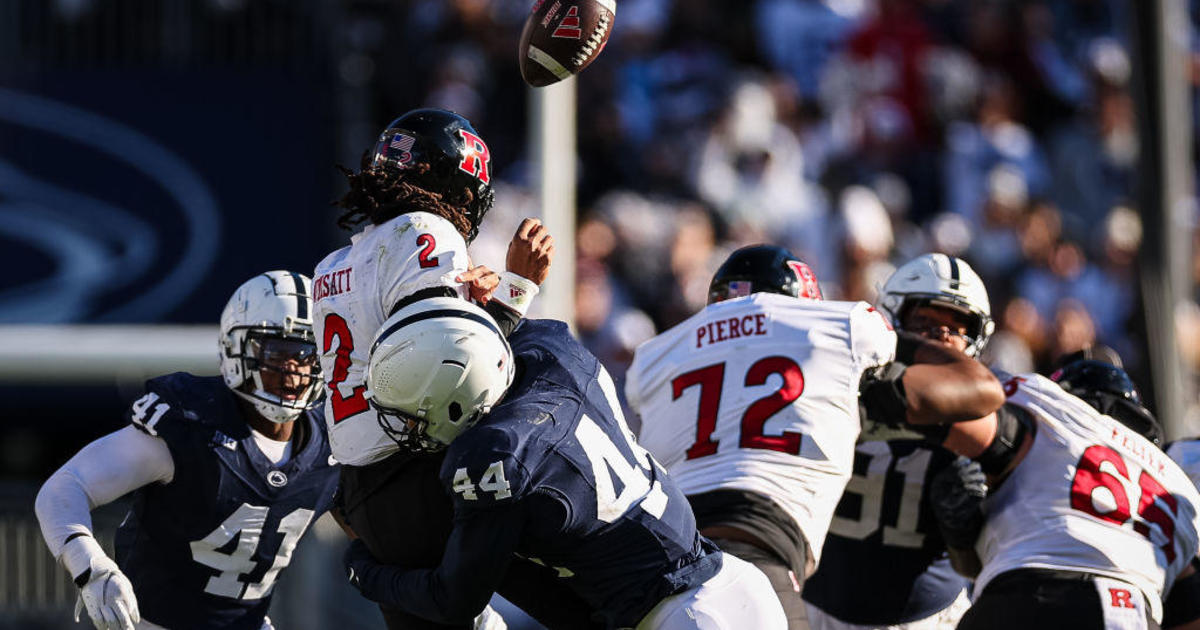Social Network Helps College Coaches Find Players
By Eric Olson
OMAHA, Neb. (AP) — College baseball coaches have looked nearly everywhere for players.
Now, they can try somewhere else — cyberspace.
From behind their desktop computers, or on their mobile devices, coaches are expanding their pool of potential recruits on a networking site akin to the popular LinkedIn for business professionals.
A coach in need of a power-hitting first baseman, a fleet outfielder or a hard-throwing left-hander can go to FieldLevel and put out the word. Chances are that within hours he'll hear back from high school and junior-college coaches eager to play matchmaker.
FieldLevel has gone from the brainchild of a couple of University of Southern California undergraduates five years ago to a tool that has gained popularity since winning "Best in Show" at the American Baseball Coaches Association trade show in January.
For a decade there have been sites and software that help coaches organize their recruiting efforts and keep track of prospects. FieldLevel is the first site where coaches can connect and help each other out.
Appalachian State recruiting coordinator Josh Jordan sent out a message this spring that he's desperate for right-handed pitchers who can throw at least 89 mph. Within 48 hours, Jordan had received profiles of 14 junior-college righties, and he said about seven are legitimate prospects.
"I would have never known about them otherwise," Jordan said. "We've got budget constraints like most everybody. It's not like we have scouts and national cross-checkers who can get on a plane and find guys in California."
Santa Monica, Calif.-based FieldLevel has signed up almost 1,000 coaches from colleges, high school and club programs since launching in July 2008. That includes coaches from more than 260 junior colleges and 100-plus Division I programs.
Brenton Callahan and Kai Sato, USC classmates who graduated in 2007, came up with the idea for a senior project in the Lloyd Greif Center for Entrepreneurial Studies.
Callahan, a baseball player, and Sato, a lacrosse player, attended small boarding schools and had difficulty attracting attention from college recruiters.
"We were both under-recruited and felt the personal pains of going through the process," Callahan said. "The problem came down to one thing: our coaches didn't know anybody."
Both accepted academic scholarships to USC, with Callahan walking on as a catcher and Sato playing on a club lacrosse team.
In developing their business plan, Callahan and Sato talked to lots of coaches and found out that their biggest challenge was coming up with an efficient way to find players.
Coaches typically are inundated with unsolicited emails and voice mails, and highlight DVDs often sit on their desks collecting dust. In old-school recruiting, thick manila folders and loose scraps of paper containing information on prospects often are strewn about offices.
Taking their cue from a host of popular social networking sites, Callahan and Sato looked for a way to connect coaches who wanted to promote their players to coaches who were looking for them.
Their concept was named 2007's top business plan in the USC business school. A group of California investors headed by Reid Dennis provided seed money. Callahan is now chief executive and Sato is chief operating officer.
They plan to gradually transition FieldLevel into other sports.
"Everything needs to be built around the coaches. They are the decision-makers," Sato said.
Once a coach subscribes to FieldLevel, a member of the company's nine-person staff vets him to make sure he is who he claims to be. If he's legitimate, he can begin communicating with others in the network.
Coaches, typically at the high school and junior-college level, put out information on their players. If a coach is interested in recruiting a specific player, he's able to gain access to that player's contact information.
Callahan said the information is secure and that no one outside the network can access it.
Basic FieldLevel service is free. Add-on features can bring the cost up to about $100 a month, Sato said.
Similar to other recruiting software, FieldLevel offers safeguards that warn a coach if he is about to commit an NCAA violation, such as making too many phone calls or sending too many text messages to a prospect. Also, a FieldLevel app can be put on the phones of all coaching staff members so each coach knows what the others are doing in recruiting.
South Alabama recruiting coordinator Jerry Zulli said the new technology allows him to make better use of his time.
"I can email every junior college in the network and say I need a shortstop," Zulli said, "and I'll get 101 replies. Imagine the amount of (individual) emails and phone calls that saves me."
A number of power programs use FieldLevel, but the teams that might benefit most are the ones that are lesser known.
"Everybody knows LSU, Florida, Miami and Texas," Appalachian State's Jordan said. "It, to me, isn't as valuable to those programs as it is to Appalachian State or a Southern Mississippi. Players may have heard our name, but don't know much about us. Once you reach out and connect with them through their coaches, they start to do more research and it becomes possible for you to get those kids."
At NAIA power Bellevue University, near Omaha, about 65 percent of the roster is made up of players who come from junior colleges.
Coach Duane Monlux said FieldLevel has become invaluable.
"I don't know how to turn on Facebook, and I don't Twitter," he said.
But he does log on to FieldLevel at least once a day to check on prospects and see what types of players are available.
Bob Kittle, the 44-year-old coach at Cabrillo College in Aptos, Calif., said baseball coaches are slow to change their ways. He said he uses FieldLevel to recruit players to his junior college. He plans to use it more for promoting his players to four-year schools once he gets more comfortable with the technology.
"You've got to put a little time into it to learn it. Once you do, you realize how much time it saves," Kittle said. "Just as a whole, us coaches are kind of Neanderthals. But if you don't learn the new technology, you might get left behind in this business."



